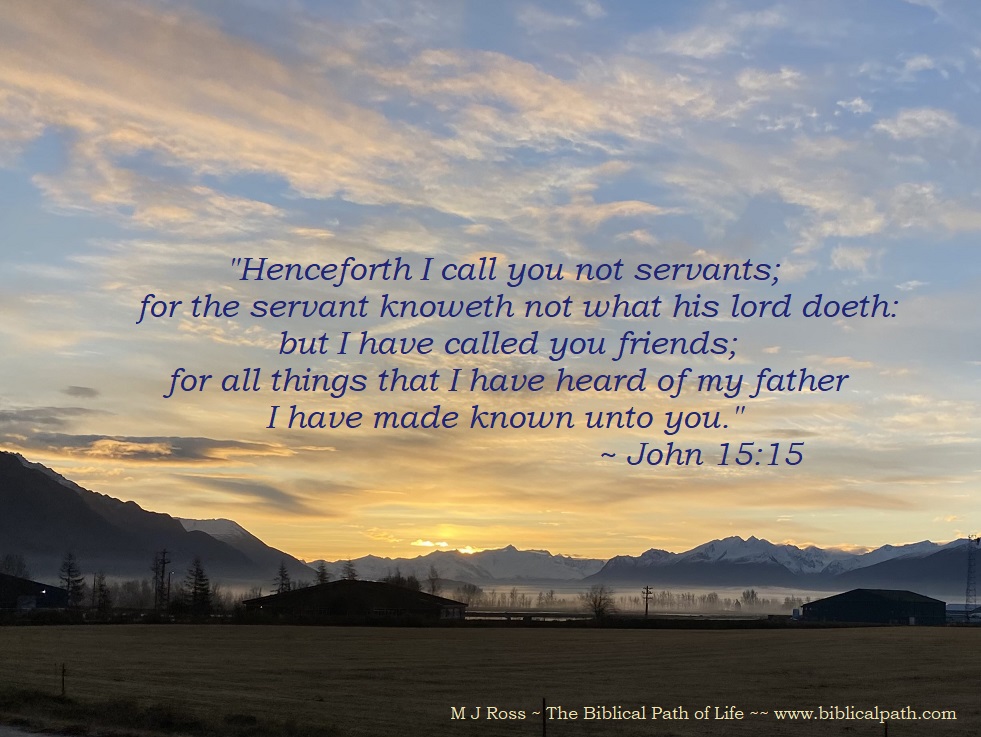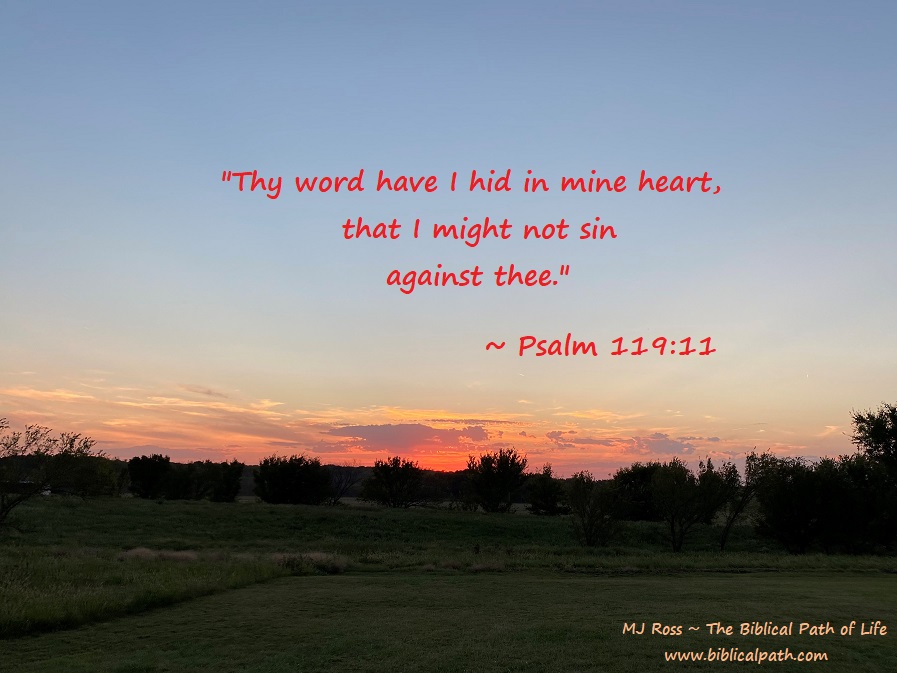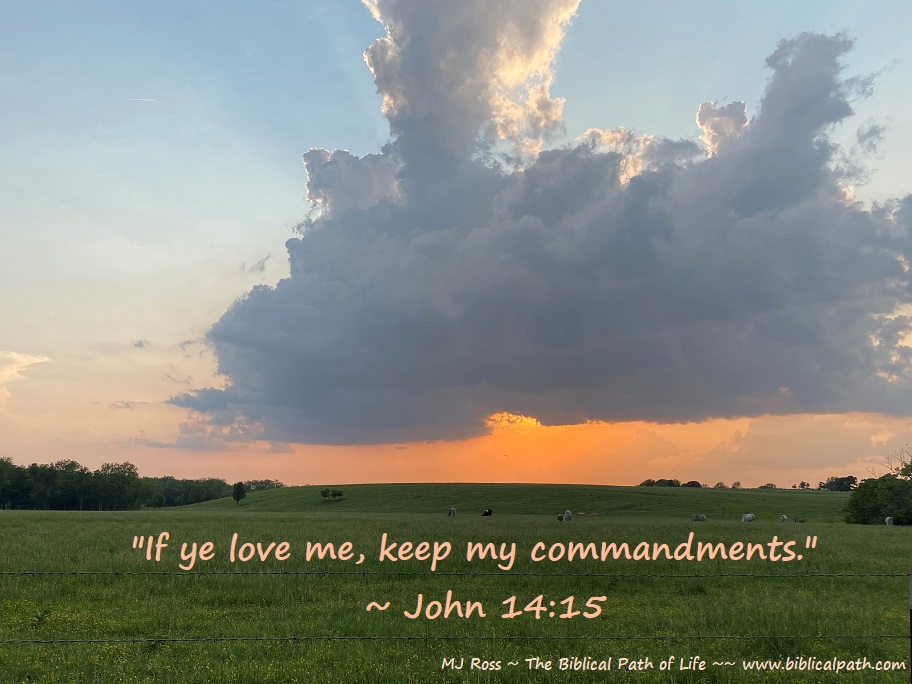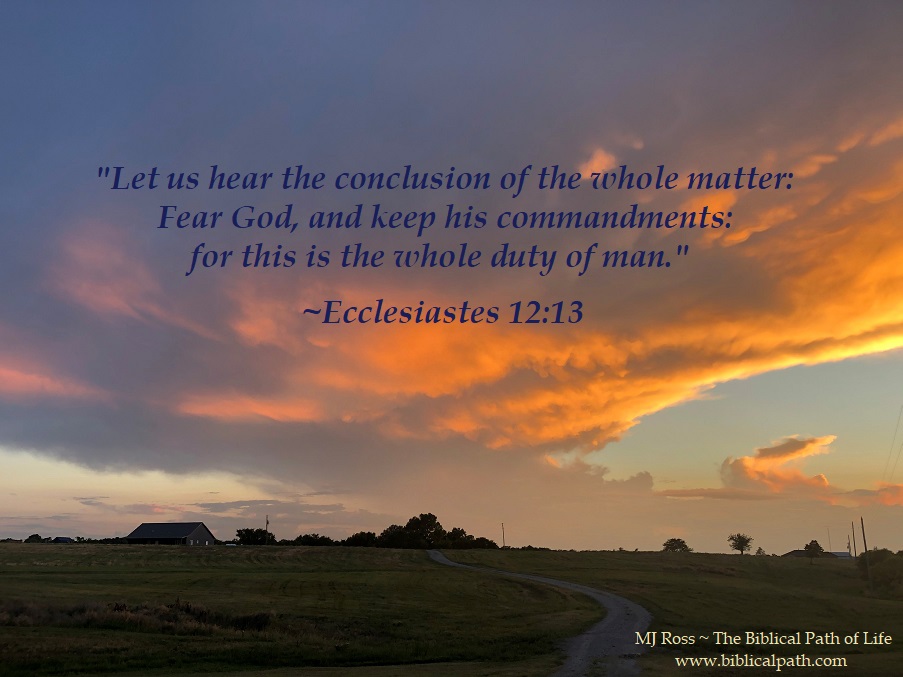
“Henceforth I call you not servants; for the servant knoweth not what his lord doeth: but I have called you friends; for all things that I have heard of my Father I have made known unto you.”
John 15:15
On the last night before Jesus was crucified, He gave some important information to His disciples. Jesus knew He was about to leave them, and they would think that they were alone. Jesus wanted to comfort and encourage them. But more than that, He had some instructions for His disciples. One of the special things Jesus encourage them with was that He loved them, and that they were His friends. “13. Greater love hath no man than this, that a man lay down his life for his friends. 14. Ye are my friends, if ye do whatsoever I command you. 15. Henceforth I call you not servants; for the servant knoweth not what his lord doeth: but I have called you friends; for all things that I have heard of my Father I have made known unto you” (John 15:13-15). Jesus was about to lay down His life (and then take it up again: see John 10:17-18). The disciples were to show that they were Jesus’ friends by their obedience. There is a great example of this in the Old Testament. Abraham believed God and obeyed Him (see Hebrews 11:17-19). “And the scripture was fulfilled which saith, Abraham believed God, and it was imputed unto him for righteousness: and he was called the Friend of God” (James 2:23). Abraham was the Friend of God.
Christians are encouraged to do the same. “He that hath my commandments, and keepeth them, he it is that loveth me: and he that loveth me shall be loved of my Father, and I will love him, and will manifest myself to him” (John 14:21). Manifest means “to exhibit (in person) or disclose (by words): – appear, declare (plainly), inform, (will) manifest, shew, signify.” Jesus promises to make Himself known to those who obey Him. Remember how Paul described it: “For in him we live, and move, and have our being…” (Acts 17:28a).
The following verses are speaking of Jesus.“16. For by him were all things created, that are in heaven, and that are in earth, visible and invisible, whether they be thrones, or dominions, or principalities, or powers: all things were created by him, and for him: 17. And he is before all things, and by him all things consist. 18. And he is the head of the body, the church: who is the beginning, the firstborn from the dead; that in all things he might have the preeminence” (Colossians 1:16-18). Jesus created all things, and all things are for Him. Understanding this, Jesus must have preeminence and be all the world to a Christian. There is an old hymn that puts this thought into words.
Jesus is All The World to Me
“1. Jesus is all the world to me,
My life, my joy, my all;
He is my strength from day to day,
Without him I would fall:
When I am sad, to him I go,
No other one can cheer me so;
When I am sad, he makes me glad,
He’s my friend.
2. Jesus is all the world to me,
My friend in trials sore;
I go to him for blessings, and
He gives them o’er and o’er:
He sends the sunshine and the rain,
He sends the harvest’s golden grain;
Sunshine and rain, harvest of grain,
He’s my friend.
3. Jesus is all the world to me,
And true to him I’ll be;
Oh, how could I this friend deny,
When he’s so true to me?
Following him I know I’m right,
He watches o’er me day and night;
Following him by day and night,
He’s my friend.
4. Jesus is all the world to me,
I want no better friend;
I trust him now, I’ll trust him when
Life’s fleeting days shall end:
Beautiful life with such a friend,
Beautiful life that has no end;
Eternal life, eternal joy,
He’s my friend.”
Recognizing Jesus is my friend, I must be His friend. Jesus must be “all the world to me”. With this understanding, read the warning we find in the book of James: “Ye adulterers and adulteresses, know ye not that the friendship of the world is enmity with God? whosoever therefore will be a friend of the world is the enemy of God” (James 4:4).
- Adulterers and adulteresses means “one who is faithless toward God; used of those who neglect God and their duty toward Him and yield themselves to their own lusts and passions; a characteristic of infidelity; adulterous; faithless; idolatrous.”
- Friendship means “to befriend; love; involving the adopting of the interests of the world to be one’s own.”
- Enmity means “enemy; hatred; hostility.”
One cannot be a friend of Jesus and a friend of the world. A choice must be made.
Have you chosen to be a Friend of Jesus, making Him all the world to you?








